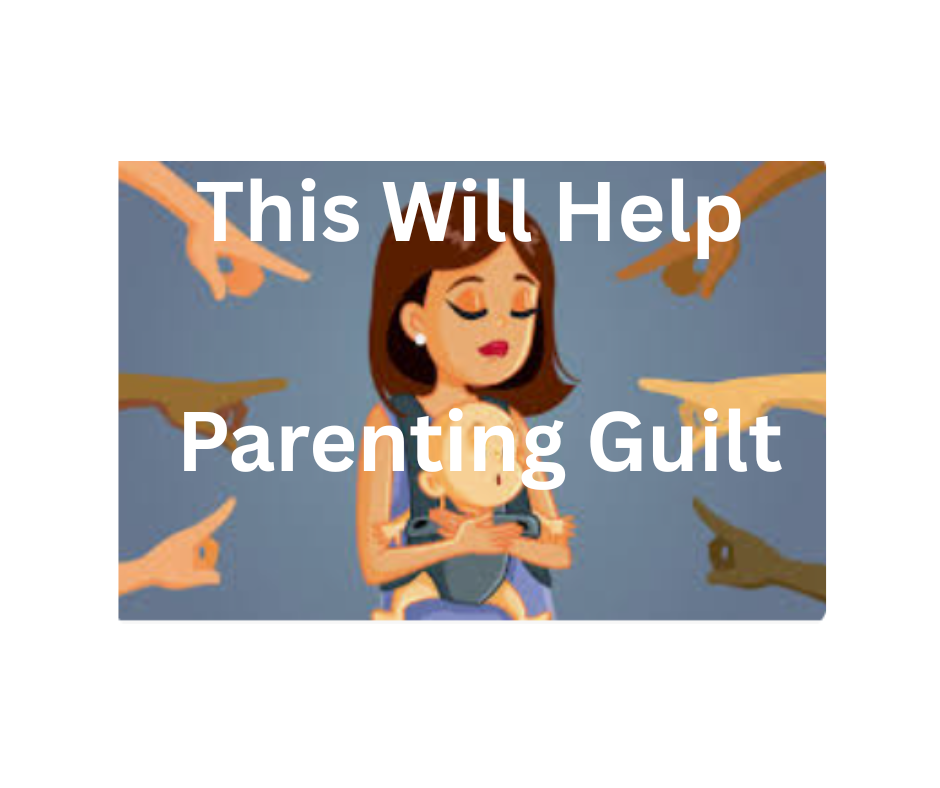Why Screen Time Issue Happens – Dopamine Reward Cycle
Chapter 2 - Why Parents Should Not Blame Self For Screen Addiction...or children Week 1
By Madhurie Singh, July 19, 2025

This is Chapter 2 of the Screen De Addiction Course. If you have not read Chapter 1, Click and read it here.

Namaste, Dear Parent,
I bet you are a parent who is blaming yourself for screen addiction in your child. My advice, dear Parent, you should not blame yourself, especially after reading this article.
Before we begin this journey, I invite you to pause.
Take a deep breath.
Place your hand on your heart.
And hear this from me — from one parent to another:
In Chapter 1, I asked you to acknowledge that your child or you have Screen Addiction. Coming from me is a big deal, as I am a born critic. And a critic acknowledging that I may be wrong is a big dent in my ego. But here I am, accepting and acknowledging that screen addiction was an issue both in my children and in myself. There, I have done the biggest thing today. You also say it to yourself, your spouse and your children, that yes, you are a Screen Addict too. See, your children and spouse will also share their experience. But…
👉 Please do not blame yourself for your child’s screen habits.
🌸 The Truth About Parenting in Today’s Digital World
Audio of The Truth About Parenting In Today’s Digital World
In today’s world, you are not just raising a child —
You are raising a child in an environment that is filled with:
✅ Smartphones in every hand
✅ TVs and Tablets in every room
✅ YouTube, Instagram, Snapchat, etc, in every pocket
✅ Schools and tuitions using online apps and screens for education
✅ Playdates and Malls where “games” are on devices
✅ Advertising pushes children toward screen content
It’s no longer as simple as “Just say no.” When the biggest brains are acting against you and your brain.
The very tools of modern life are designed to capture and hold attention, not just of children, but also of adults!
Why Screens Are Made Addictive — Even for Adults
Audio Overview of How Screens Are Made Addictive
It’s Not Just Random Fun — It’s Engineered to Hook You
You’re watching your toddler giggle endlessly to Cocomelon. Your teen’s eyes haven’t blinked in 45 minutes while binge-watching yet another K-drama. And you? Well, just one more episode on Netflix… sounds familiar?
Let me tell you something shocking. These aren’t accidents. Your screen habits—and your child’s—are being engineered by the world’s smartest minds to become habits… and then addictions.
The Psychology of Hooking Attention: Designed, Not Discovered
talent. They engineer attention. They hire:
- Cognitive psychologists to decode how the human brain responds to sound, colour, surprise, and rhythm.
- UX designers and neuro-marketers to make apps so smooth that your fingers tap without conscious thought.
- MBAs from Ivy League schools who use consumer behaviour data to build emotional purchase and viewing patterns.
- AI engineers who feed your reactions into machine learning models to predict and manipulate your next move.
This isn’t a conspiracy — it’s capitalism. Attention = money. And your child is the currency.
The Dopamine Reward System In The Brain
Audio Overview of The Dopamine Reward System In The Brain
Lets understand the reason behind why the screen are so damn addictive. The science is clear:
Screens trigger the dopamine reward system in the brain — the same system that responds to chocolate, gambling, or other addictions.
- When your child watches cartoons or wins a video game level → dopamine spike
- When they scroll social media → dopamine spike
- When they hear notification sounds → dopamine spike
Over time, the child’s brain begins to crave this stimulation.
And so does the adult brain!
Deep Dive Into Dopamine Reward System
There is one chemical in our brain that makes us feel good — it’s called dopamine.
Nature gave us dopamine so that when we found food, clothes, shelter or love, we felt happy and wanted to do it again. Why? Because it helped humans survive, long long ago.
But today? We are not in caves anymore. Life is full of comforts. And screens, internet, social media — these have now become our new ‘reward’ triggers.
Every time we scroll, watch a fun video, or hear a ping on the phone, the brain releases dopamine. And the more this happens, the more we crave it.
In fact, top experts like Dr. Anna Lembke (author of Dopamine Nation) say — in modern life, we are all at risk of becoming addicted to screens and the internet. Even without knowing it!
The Step-by-Step Process: How Dopamine Works
How To Get Over The Dopamine Reward Cycle?
🌿 HERE’S THE GOOD NEWS:
- The brain can also “unlearn” this habit.
- With simple daily steps (you will learn in this course), you can break this cycle.
- Your child can become calm, happy and balanced again — without screens ruling the mind.
Share this article on Dopamine Rewards Cycle With Another Parent You Care
📚 (Link: Stanford Study on Dopamine and Screen Time)
🚫 Why Guilt Does Not Help
Many parents tell me:
“I feel so guilty — I gave my child the tablet during lockdown.”
“I should never have introduced that game.”
“I failed my child.”
This guilt is unnecessary.
Here is why:
1️⃣ Screens were not designed for children’s brains, but they were pushed into family life by schools, companies, media and the content creators.
2️⃣ The 5 years 2020 to 2025 (pandemic, online schooling, social isolation) created a global situation that no parent had faced before.
3️⃣ You are not the problem — the digital environment is.
And now that you are aware, you can become part of the solution. Don’t now relax, thinking it’s not your fault.
📚 (Link: WHO Report on Digital Overexposure in Post-Pandemic Families)
🧠 How Guilt Blocks Positive Parenting
Neuroscience shows that when a parent feels chronic guilt, the body moves into a stress state:
- Guilt puts your body into a stress state — your brain thinks there is danger.
- The stress hormone cortisol goes up.
- Your thinking brain (called the prefrontal cortex) starts to shut down.
- You lose patience, become reactive, shout or scold — not because you are a bad parent, but because your body is in survival mode!
This leads to more:
❌ Shouting
❌ “No no no!” cycle
❌ Battles over screen time
Read Article from Harvard About Toxic Guilts
🌿 What Works Better: Self-Compassion
New research shows that parents who practice self-compassion → create calmer, more effective parenting patterns.
Self-compassion leads to:
✅ More empathy for the child
✅ More problem-solving behaviour
✅ Better modelling of emotional regulation
📚 (Link: Journal of Family Psychology — Self-Compassion in Parenting)
✨ Ancient Indian Wisdom — Parenting Without Guilt
If you read the great texts — Mahabharata, Ramayana, Upanishads — you will find that even the wisest mothers and fathers faced moments of uncertainty.
- Kaushalya, mother of Rama, worried when Rama went to the forest.
- Kunti, mother of the Pandavas, had to make impossible decisions.
These parents were not perfect — but they were courageous.
They learned. They grew. They trusted their inner wisdom.
You too are walking that ancient path of parenthood.
It is not about perfection — it is about presence.
🪷 How to Start Fresh — Today
Here is your small action for today:
✅ Forgive yourself.
✅ Tell yourself: “I did the best I could with what I knew.”
✅ Shift from guilt → to curiosity.
Ask yourself:
- What is really happening with my child’s screen use?
- What patterns can I notice — calmly?
- How can I replace guilt with positive action?
That shift is the real beginning of change.
🤗 You Are Not Alone
In India today:
- 8 out of 10 children between age 3–12 are reported to use screens for more than 2 hours daily.
- Many parents feel helpless or judged.
- The digital world is changing faster than parenting advice can keep up!
📚 (Link: Indian Pediatrics Journal — Screen Use Trends 2024)
That is why we are here — together — in this Trusted Parents Circle.
To learn, to share, to grow — without blame.
💬 A Final Thought
You are a GOOD parent because you are here — learning, reflecting, trying new ways.
As I often tell my community:
“The best parents are not the ones who do everything perfectly — they are the ones who keep learning with love.”
And that is YOU.
🌟 Ready to go deeper?
Now that we have cleared guilt from our minds —
Let’s understand WHY screens hook children so powerfully.
Click → Go to Chapter 3: Why Children Get Addicted to Screens – How Indian Parents Can Help
🛠️ What Can Indian Parents Do?
Join The Screen De-Addiction Course Here
Fill The Google Form To Connect With Madhurie Singh or Join the Trusted Parents Circle
Join The Trusted Parents Whatsapp Group Here
✍️ About the Author
Madhurie Singh is India’s leading education and parenting expert, a school reviewer, computer engineer, Sanskrit scholar, and founder of Trusted Parents. Through ancient wisdom and modern science, she helps parents raise mindful, values-driven children in a digital-first world.






Login is required
Don't have an account? Sign Up